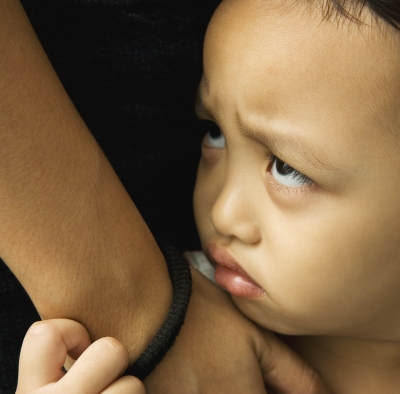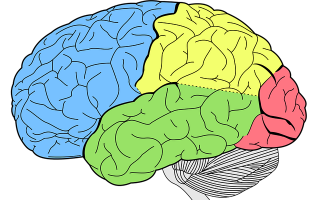Guilt is a complex emotion to learn, it requires a set of rules to be known, knowledge of what it means to break them, knowledge of what they should have done and then the ability to put things right. When it’s explained like that there are a large number of composite steps involved and that’s without a child even recognising the emotion and being able to act on it.
The way we learn about guilt is in stages and it is not really until we have developed our internal monologue (our conscience) at the age of 7 or 8 that we can really reflect on our actions and express true guilt.
Initially we learn as a baby and toddler what the social expectation is. We learn to say please, thank you, we learn not to snatch. This is the stage where they are learning the rules of what is expected. It’s only when we grow into a social child that we then learn how to consistently use manners. This is also the stage where we know what we should be doing and also we learn (mostly through trial and error) how to put mistakes right.
As we grow into a middle child our external babble and talk becomes internal (you’ll notice this in their play) and this is the stage that the conscience develops inside the brain. Provided a child understands the preceding steps then they’ll start to experience genuine guilt and need to learn how to deal with it. If a child hasn’t understood the composite parts of guilt and doesn’t learn to handle the emotion then you will see that they struggle with the concept of true guilt.
This isn’t the end of the guilt journey however, during adolescence the brain brings in the bulldozers and rewires in preparation for adulthood. During this stage it is likely that they’ll need support to work out how to put situations right.
Things that help children learn guilt
Baby/toddler:
Use words and actions to show how to do things.
Teach them the social expectations.
Teach the use of manners.
Don’t expect guilt to be shown or understanding of why they did something.
Child:
Be empathetic.
Teach them how to put situations right.
Talk about how you feel when you do something wrong and what you do to put it right.
Teenager:
Be empathetic.
Be open to discussing their emotions, including guilt, offer an ear to turn to.
Guide and coach your teenager so that you are almost like a mentor to turn to.



